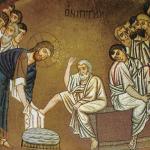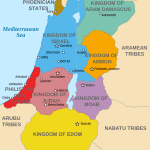
The upcoming lectionary passage in Matthew 20:1-16 strikes me as timely. The attitude we see here—the attitude of the workers who worked all day and are angry about those who received the same pay for less work—this attitude is something exhibited prominently in recent years. I’ll get to that in a minute. But first: it is familiar for other reasons. All of us have felt this way when we are struggling and we see a good go to someone we find undeserving; or maybe less deserving than we think we are. This can be a material good, a lasting love relationship, a professional position or opportunity, and so on.
Envy may be perfectly human when someone gets what we want and seemingly did not work hard for it; but Jesus uses a story to shed light on this flawed calculus. The story is a “kingdom of God” parable, a snapshot of the realm of God and its values. Essentially, the parable says that according to this value system, our actions, our lives, are not measured in the way you and I measure things.
In this parable, the attitude of the workers who worked all day and are angry someone received the same pay for less work—is also evident in the news these days. I can think of several prominent examples. There are those who don’t want to expand Medicaid in their state even when their state or their own families would benefit—because they don’t want free medical care to go to the “undeserving.” There were those who see student loan forgiveness as unfair because, well, they or their kids had to pay their student loans, or perhaps they chose not to go to college because of the debt. There are those who oppose helping asylum seekers because they believe “outsiders” or undocumented people shouldn’t get special help that citizens don’t get. They don’t want to see supportive or subsidized housing offered to the unhoused because, my goodness, their own family has to pay for housing, so everyone should have to pay for housing. There are those who wanted to see an end to affirmative action—which the Supreme Court ended this year.

Seeing Inequity Where it Exists
In all of these cases, the value being held up is, on the surface, about fairness. But it’s really a failure to see inequity/unfairness where it exists, and a failure of empathy. If challenged, these people likely would not want to trade places with those who are sick and lacking basic healthcare. They wouldn’t want to trade places with those financially crippled by debt and compounding interest. They surely wouldn’t want to trade places with those from a country so beset with violence that people flee for asylum. They wouldn’t want to be unhoused. They wouldn’t want to routinely experience discrimination. They wouldn’t want to trade places with those in these situations, but still, because of what they perceive as fairness, they can’t stomach seeing people receive the reward of those who supposedly worked from the beginning of the day—to use the imagery of Jesus’ parable.
One of the first things we learn to say as children is, “That’s not fair!” We learn early how to stand up for our due and to cry foul when we aren’t getting it. But according to this parable in Matthew 20, this is an unenlightened, immature perspective. Because in God’s realm, certain values are much more important than what we perceive, in a flawed way, to be fairness. For example, empathy and compassion. We’re meant to develop the insight that sees when people experience inequity—even if all might look to be “fair.”
If we are so fortunate, we are meant to be grateful we have a roof over our heads, grateful we received an education, grateful we don’t live in a country at war, grateful we have some kind of health insurance, grateful for all the other privileges we have. True gratitude requires that we see when people are struggling to meet needs, especially when they’re struggling in ways we may not understand because we are buffered from those experiences. According to this and other teachings of Jesus, what is called for is empathy—the insight to see another’s experience. What is called for is generosity. These are the values of the “realm of God.”
What would it be like to look at the workers who metaphorically show up at the end of the day and to see them with the insight and compassion that the vineyard owner seems to have in this parable? As challenging as it is, that is what the realm of God asks of us.
Wren, winner of a 2022 Independent Publisher Awards Bronze Medal


















